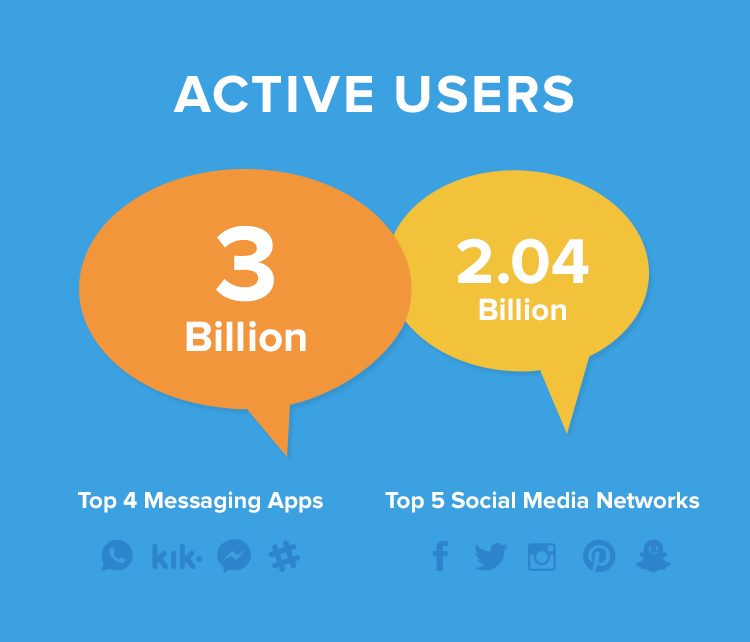As organic reach on social media withers, and personalized email programs become old news, brands have begun entering the one space that you thought was reserved for your “real” social life—private messaging. We all have our own, individual style when it comes to what information we want to post to our whole social media following, […]
As organic reach on social media withers, and personalized email programs become old news, brands have begun entering the one space that you thought was reserved for your “real” social life—private messaging.
We all have our own, individual style when it comes to what information we want to post to our whole social media following, and what we reserve for a more selective audience on our private messenger apps, like Facebook Messenger or Whatsapp. Well, it turns out that private messaging is where most of the action is happening. In fact, messaging apps are seeing 1.4 billion monthly users, with the top four messaging apps sharing 3 billion users in total. This is surprising when stacked against the number of active users on the top five social media networks, which amounts to only 2.04 billion users.

The palpable popularity of private messaging is not new, but it has elicited some recent shifts in the market. Apps like Kik and Slack have joined the scene, and brands are launching chat bots, or automated messaging interfaces, to engage with consumers in the private messaging world. Companies like KLM and Sephora have developed chat bot interfaces that offer a wide range of services, such as the facilitation of financial transactions, or personalized beauty tips. Taco Bell has a TacoBot operating on Slack, which will process your food orders for you, and will even make food recommendations if you ask it. There is also speculation that Facebook will announce its own launch of automated agents, to be named “bots on Messenger”, at the upcoming F8 conference.

The proliferation of chat bots is inevitable as they are surprisingly easy to build and scalable across several messaging platforms. So, should we be concerned about brands invading the “private” space, or is this a welcomed service offering?
Chat bots are great for those consumers who are too impatient to wait on a customer service line, but are still looking for that personalized experience which can’t be achieved by browsing a website or performing a Google search. The founder of Kik claims “Chat apps will come to be thought of as the new browsers; bots will be the new websites…this is the beginning of a new Internet.” It is the difference between browsing a newsfeed, with content curated for you based on an algorithm, and asking for exactly what you want, when you want it.
For the marketing world, personalization is already huge, and private messaging is a clear next step. On the basic level, brands have an opportunity here to extend their customer service reach, with a lower cost than hiring more staff. In addition, there is the opportunity to offer useful services to consumers, in a very accessible way. For example, food companies can offer recipe suggestions, and furniture stores can offer design inspiration, in the same way that Sephora has a chat bot offering personalized beauty regimens.
But, the smartest brands will not focus only on the content and services that they can put out for consumers; they will hone in on the other added value of chat bots—data collection and brand development. With the potential to have one-to-one conversations, brands have a lot to gain in terms of client discovery and the collection of micro-level data. But beware, bot relationships will mimic real relationships. The more you speak to your consumers and interact with them on an individual level, the more attention and personalization they will expect in return.
As the VP of Digital Marketing at Sephora attests, “We know, based on global trends and the evolving landscape, this is the next element to engage with our customers on”. So, get out there, get chatting, and chat wisely.
